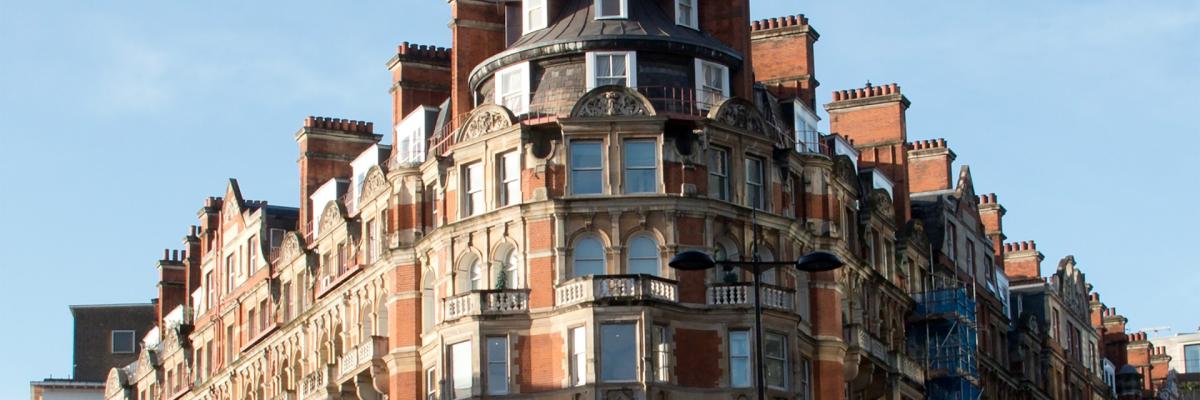LAFRA - Leasehold and Freehold Reform Act
- Lee Wisener
- 08-03-2025
- Regulation
LAFRA is beginning to generate a lot of discussion in all parts of the industry, and support for it seems to be turning to opposition from what I am seeing. Some of the reasons are justified.

Table of contents
I won't cover the details behind Freehold and Leasehold here, I have another article that goes into those which you can read here. I want to cover the reasons for opposition to the LAFRA reforms from both the view of occupiers and lenders.
In short, the proposal, only for new properties, is for freeholds and leaseholds to be replaced by commonholds.
Let's assume for this article a new block of flats has been built, it has 100 flats, some retail units on the ground floor and various common areas.
What is Commonhold?
Commonhold is a form of freehold ownership for flats, it's considered a fair way to own and manage common areas of a building for the benefit of all owners. Briefly;
- Individual flat owners own their property outright and share ownership of common areas.
- There is no lease and therefore no lease extension cost. No ground rent either.
- A Commonhold Association made up of flat owners manages the building and common areas.
Theoretically, it should be a better system, that is fairer to individual owners. There is much reference to the USA for example where Homeowner Associations have thrived, but, more on that later.
The Commonhold Association
One of the first tasks for our new block of flats is to establish a Commonhold Association. This is a limited company. More specifically, a private company limited by guarantee (not by shares).
The association owns and manages all common areas in the building. This includes hallways, gardens, roofs and anything that does not belong to an individual owner in the block.
The Association requires a board of directors, who will be flat owners in the building.
There is democratic control, each flat owner gets an equal say in the management and financial decisions of the Association. Each flat owner will become a member of the Association.
Major decisions related to repairs and service charges are voted on by all owners.
The Association must follow a Commonhold Community Statement (CCS) which is a set of rules governing how the property is managed.
Each owner will pay an agreed service charge to cover the costs related to the building. In return, the Association publishes annual accounts showing what money is available and how it's spent.
When a property is sold, the new owner automatically becomes a member of the Association.
Sounds decent, right?
What issues are being raised?
Whilst the theory of the Commonhold seems sensible the reality is likely to be somewhat different. Here are some concerns.
Finding volunteers
Finding owners willing to take an active part either by being on the board of the Association or turning up to meetings in appropriate numbers can be challenging.
In many cases, a block of flats could end up being owned by investors in high numbers who are not on-site and therefore unlikely to attend meetings and contribute to decisions. Tenants cannot be members of the Association.
Destructive or controlling owners
It may be that an owner is intent on being destructive to the Association or could end up with too much control due to the lack of involvement from other owners. This brings me back to the model in other countries such as the USA. One or two owners become so wrapped up in their view of building management that they end up being the ones making all the decisions with support from a minority that is enough to make decisions on behalf of everyone.
The proposal is that only 75% of attendees at Association meetings are needed to pass decisions. So in a block of 100 owners, only 4 need to turn up and 3 vote in favour of something that could be substantial and it passes. I am reminded of a family member in the USA who due to a passed resolution at her homeowners association, driving your car into your driveway instead of reversing it incurs a $10 fine.
Building Maintenance
When you have many owners, in the case of our example of 100 flats. Many will be less keen to spend appropriately and object to high maintenance costs. Repairs 'on the cheap' may be the preferred route for many to save money. This could be especially true of owners who own as an investment.
Shared Ownership
In some buildings there are shared ownership units to allow more affordable housing, how will that work? A tri-party agreement? Will there be potentially two members of the Association for one flat, the owner and housing association?
Commercial Units
What if you have commercial units in the building, how will they be managed and will they become a member of the Association? What service charges do they pay and so on?
These are just a few of the issues that need to be considered.
When it goes wrong
At some point, an owner will fail to pay service charges. How will the association manage situations like that? What if it gets to the stage of considering taking possession of the flat to pay the costs? This is a lot for an association run by owners to manage even if just to instruct solicitors. Someone still needs to track and make decisions.
These are just some thoughts so far. Commonhold should be fairer than the current system. But, the current system could also have been reformed instead of changing it completely. There will be a lot more on this throughout the year. I will update you in due course.
Lee Wisener
I am the Admin of this site. I created it from scratch, and I made all the content. The bottom line is that I'm it if you're looking for the person responsible! We now have a new support system, please log in and use it rather than email where possible.



Comments (0)
Want to comment on this page? Login or Register.